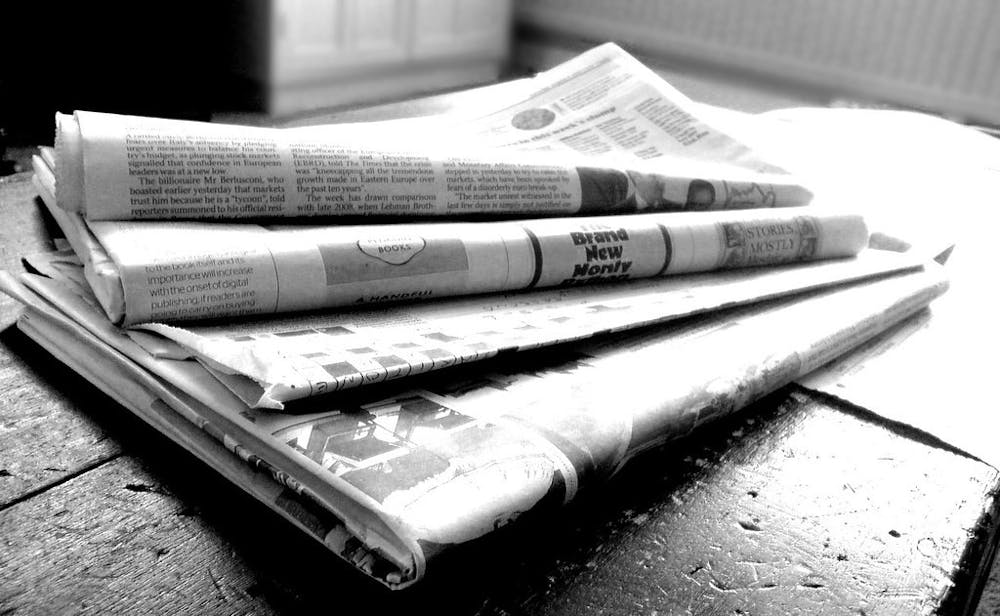Each morning when I go downstairs, I am met with the sounds of chattering from my television. It has become routine now: faces of news commentators and politicians joining in on our day. There hasn’t been a day in the past few weeks where my family has not watched the news. That’s never happened before.
Throughout the spread of the COVID-19 pandemic, the news has been everything from useful to downright depressing. As much as I want to know what is going on in the world, I frequently find myself disheartened when bombarded with constant updates on the increasing rates of hospitalizations and citizens blatantly ignoring lawmakers’ and doctors’ recommendations. Often, it can be extremely difficult to make myself scroll through the virtual newspapers or even hear about the worsening situations on social media.
Before I left campus, I tried to block out all of it. Selfishly, I wanted to escape and immerse myself in the haven of Princeton’s bustling dining halls and beautiful streets. But coming home, I have seen my immigrant parents, who usually never watch American news, begin to tune in. They are some of many in America and across the world who have come to recognize and rely on news and reporting, which have only become more crucial as the situation has become more extreme.
The state of journalism has seemed quite dire in the past years. With the appearance of the term “fake news” and the growing desire for instant gratification through technology, it appeared that many no longer trusted, or felt the need for, consistent, intelligent reporting. Local newspapers shut down, while more people began to rely on questionable news sources like Facebook’s News Feed.
As technology grew, the manipulation of information only became easier, creating often exaggerated headlines and polarized readers. Even I, who have always believed in free press as a foundation of democracy and thought, was beginning to grow wary of what seemed to be the increasing politicization of certain news channels and newspapers.
But COVID-19 has changed all that. People now cling to the news to find any information they can about how to stay safe and what to expect in the coming months. In the face of a global crisis, we need consolidated, intently researched information so that we know how to collectively stop the virus’ spread.
From government order updates to the number of cases per region, journalists are providing the necessary facts.
It has become more important than ever to keep up with the news, as the consequences of the virus change every day. Many newspapers, like the New York Times, have recognized the increased demand for information by providing free access to significant news about the pandemic. Even within the University community, The Daily Princetonian has been consistently providing essential knowledge, leading to greater appreciation on platforms like Tiger Confessions++. It is hard to imagine where we would be in fighting this pandemic without the presence of journalism. Although the realities it uncovers may be tough to hear, the information it provides and the myths it dispels are invaluable in this moment.
Although people are now waking up to journalism’s importance, the thing is, journalism has always been there. Reporters have never stopped working to provide current, true information to the general public to help our lives and to point out the problems we can solve together. Journalism has played perhaps the most significant part in maintaining freedoms and expanding rights throughout history, and it will continue to do so in the future. It may have taken a pandemic for many to see it, but that it is now being recognized is an absolute victory for us all.
COVID-19 is devastating. It will have massive impacts on our communities, many of them heartbreaking. But from some extraordinary circumstances comes extraordinary responses. Journalists have risen to the occasion, each day informing the public of what is crucial to maintaining a healthy, secure society. So to my parents and everyone else, keep listening to, reading, and watching the news. From all the despair, we are learning to find our faith in the truth again. And that is an incredibly powerful thing.
Kate Lee is a first-year from Austin, Texas. She can be reached at k.lee@princeton.edu.









